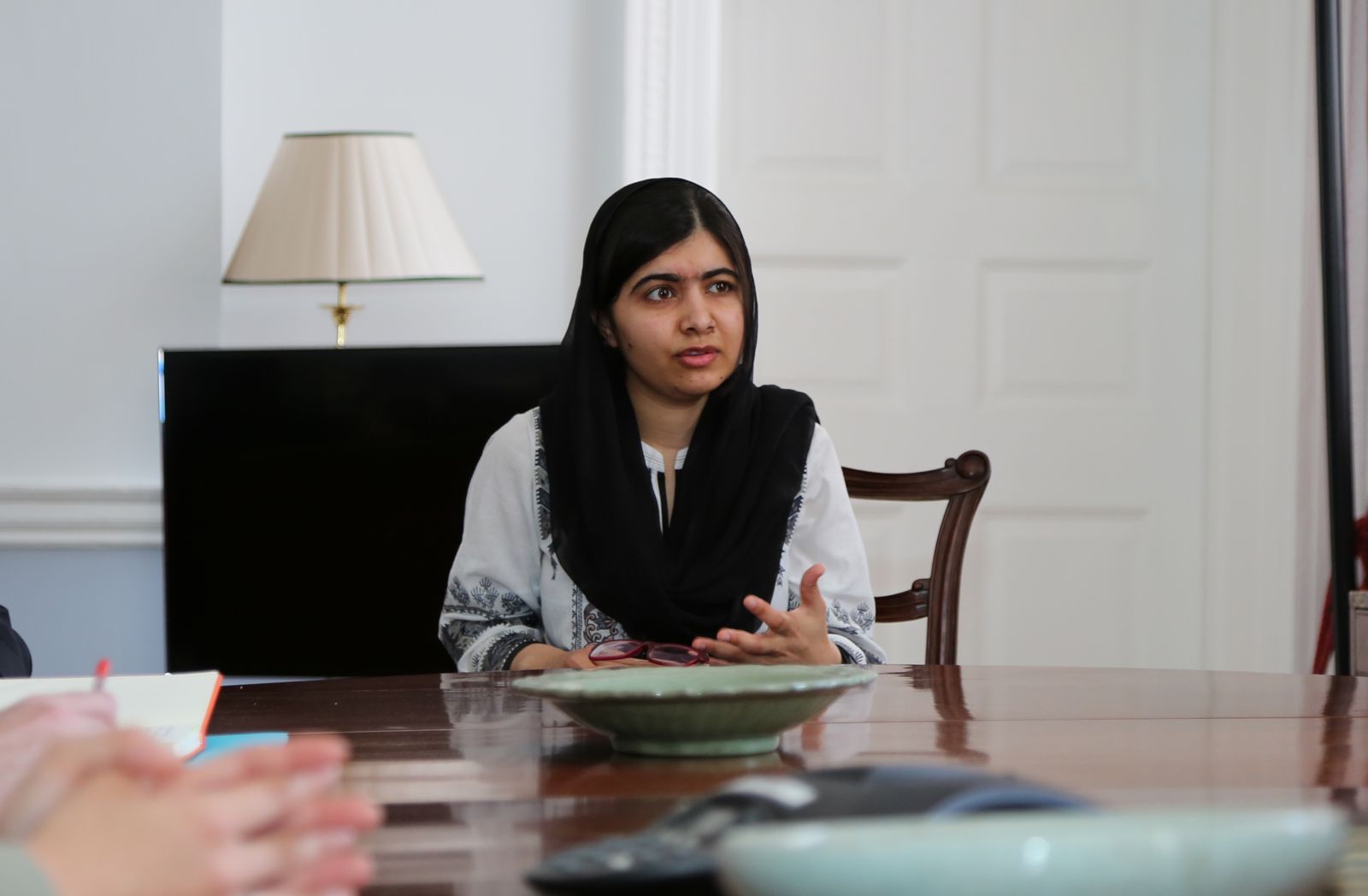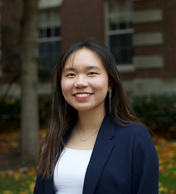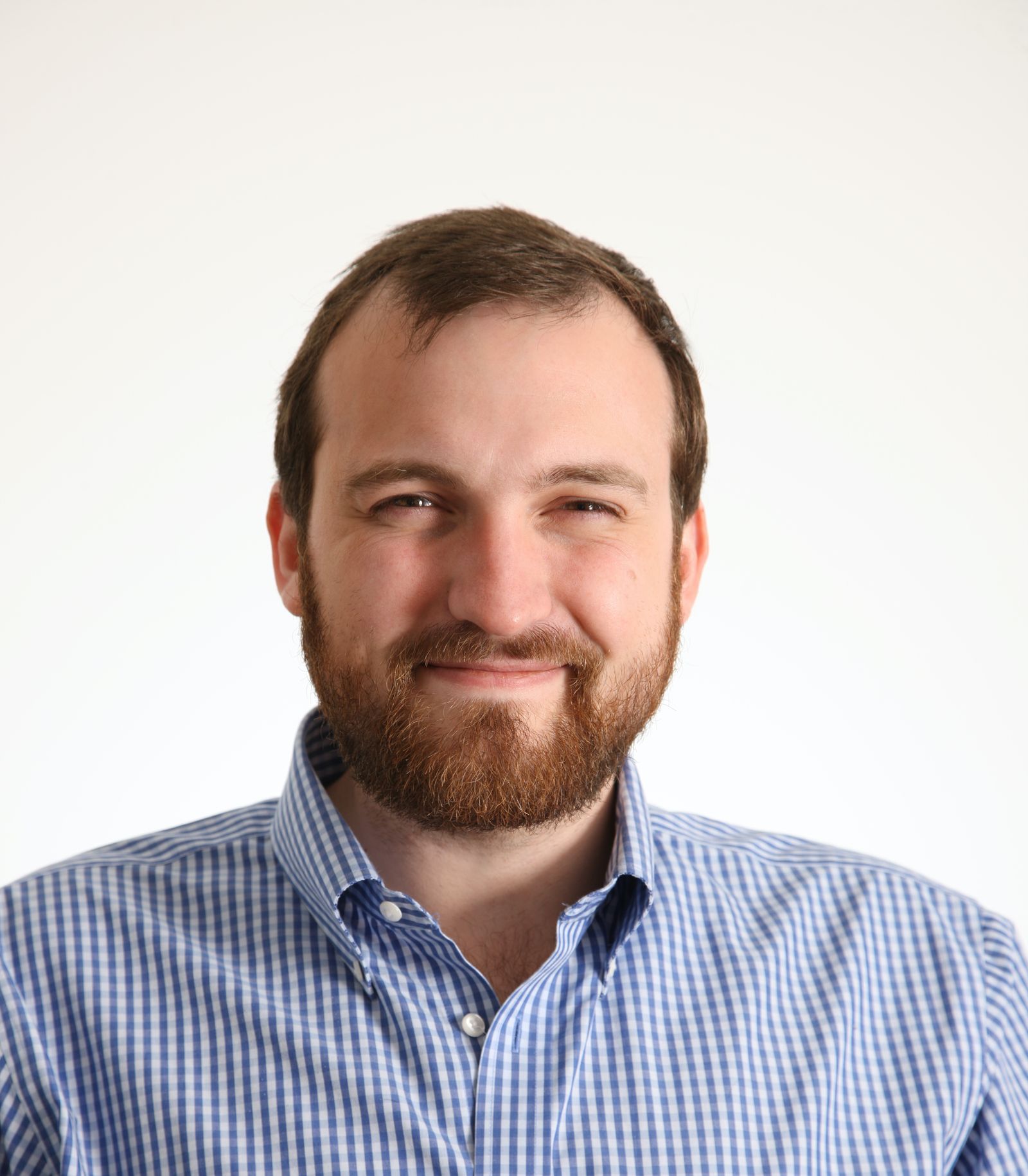Malala Yousafzai is a globally recognized advocate for girls’ education and the youngest-ever Nobel Peace Prize laureate. Hailing from Pakistan, she began her activism as a young teenager, speaking out for the right of girls to attend school in a region where education opportunities were limited. In 2013, she co-founded Malala Fund, an organization dedicated to expanding access to education for girls globally. Yousafzai continues to champion equality, currently working to end gender apartheid in Afghanistan. She inspires generations of women and girls to believe in the transformative power of education.
How has your unique perspective—shaped by your experiences as a refugee activist or Nobel laureate—influenced the way you approach global education and gender equity advocacy?
I became an activist because of what I experienced when I was 11 years old: the Taliban banned girls' education. Today, I am in my late 20s, and we're still living in a time when girls in Afghanistan are fighting against the ban that the Taliban are yet again imposing on girls' education. Activism has been part of my life partly because it happened to me, but also because it's happening to other girls. I saw how it impacted my life, and I could not imagine a future without an education. I know how many Afghan girls right now are dreaming of a world where this ban is lifted so they can go to school, and I know that there are 122 million girls who are currently out of school all around the world, whose dream is to complete their education, to be able to achieve their dreams. That's what keeps me going. That's what gives purpose to my life: to be an activist [for] refugee[s].
I call myself more a “displaced person” than a “refugee” because sometimes you have to look at your visa status and [other legal statuses]. I think it's the displacement that is faced by so many people in different forms. Some have to take the legal route, [and] some have to take the difficult illegal routes and go through these very challenging circumstances to find safety. What is important in all of [these circumstances] is that we highlight that everybody deserves to be in a safe place where they can have the right to complete their education, be safe, and follow their dreams. It's shocking how the number of displaced people is increasing every year. The work I do is focused on girls' education; we know that millions of girls are impacted [by refugee issues] because they become displaced, and we know that [access to] education is a big challenge for refugees and displaced people.
You've done so much activism, ranging from education rights for women to climate justice. What lessons have you learned from your experiences and other activists?
It has been a 10-year journey for me at Malala Fund, and it has been a much longer journey of activism because I started speaking when I was 10 years old. I have more experience working through a nonprofit, which I set up when I was receiving so much attention and support from around the world while recovering from the Taliban attack. I wanted to create a charity that can help girls around the world get access to education. There are many things I have learned [in] the past 10 years; I have realized the unique strengths of this activism for girls' education.
The first [strength] is working collectively with local education activists. Malala Fund has [been] a champion of activists in different countries, including Nigeria, Pakistan, Afghanistan, Brazil, Tanzania, Ethiopia, [and] Bangladesh. These activists are working on the ground to address the challenges affecting girls in their communities. The[se] challenges [in education access] vary from region to region, and that's why it is a bottom-up, locally led approach, where activists are given grants and other kinds of support so they [can] lead this work towards creating a world where others can have access to complete education. We are very focused in our work with these activists.
We are working with organizations [that] are addressing the gap in secondary education. Involvement at the primary [school] level for girls has increased, and we see [the] gender disparity narrowing. We find a huge gender disparity in secondary education. That is the focus because gender-related issues impact us a lot more when [we are] in [our] adolescence, from forced marriages to teenage pregnancies to cultural norms and expectations [about] different domestic roles. That's been the key focus of the [work] that Malala Fund does. Our unique strength is the collective work we do with the activists—we want to expand that.
The second [strength] is unique when focusing on supporting girls. It's not that we want to go and work for girls and talk about them like they are not capable of doing some of the work themselves. I started this organization as a girl activist [when] I was only 15 years old, and I consider myself very lucky now. When I look back, people believed in my story, and they came forward and funded this charity. My story is not unique, and I did not have any unique capability to do this work; any girl can do this. We need to believe in girls' leadership. We need to fund their work. We need to follow their lead, and we need to match their determination. I believe they can bring change. This is another thing that Malala Fund wants to take forward—we just launched this campaign called “What Girls Want.”
I have been to many rooms where decisions about girls' futures are made, and the girls are not in those rooms. For instance, there was a recent United Nations summit, where some youth representatives were invited only to give short speeches, which I appreciated. But when I had a conversation with them and asked if they were even involved in the drafting of those commitments, the answer was no. That's what's missing. We need to make sure that young people, especially girls, are engaged, trusted, and funded. That is something that Malala Fund believes in. We will carry it forward. We will support girls directly so they can lead the change, specifically for girls' access to education. I believe we all can do our part to support girls in [the] different [forms of] activism they are doing, from climate change to [various] inequalities, [including that in] access to education.
Given stereotypes and glass ceilings, what are the biggest challenges for gender equality and education, and how did you overcome them to make a change? Where do you see the biggest opportunities for change?
This is a tough question because when you do this work for a long time, you get used to the challenges. I have faced many frustrations, especially because I started at a young age. To me, it was really absurd that more than 130 million girls could not be in school. Why is nobody putting money into this? If everybody knows girls' education is important, why don't they step forward and do more? When you start young, you're so ambitious, but you also believe that it's so simple and basic: every child should have the right to an education. But why is that not the case? I learned a lot along the way. I know that activism requires patience, but it also requires you to remain committed and dream big.
I gain a lot of hope and strength when I meet girls in different parts of the world, from Nigeria to Brazil. The girls’ commitment to their own education and how they are fighting for their right to be in school inspire me. I have met girls who have faced extremely difficult circumstances, including forced marriages, displacement, wars, and terror, but they have not given up on their fight for education. Sometimes people take me to inspire girls, but it's the other way around. Those girls inspire me and others; I don't think any of [them] need to be told that education is important. They already know that and are fighting for their education. What we need to learn from them is that we should invest in their education by providing them facilities.
What is the biggest barrier to gender equality globally, and how can women from different parts of the world collaborate effectively to address these issues?
I don't want to look at it as a barrier; there are missing parts. We need more collective activism to protect women's rights globally and protect the rights we are gaining for women. I thought progress would be linear, [that] the world would be a happier place every day [with] more rights for women. But over the past five [or] six years, we see how women's rights have been taken back in different parts of the world.
The biggest example is Afghanistan, which is the only country where girls are banned from secondary education. Women are banned from work, and Afghan women are living under systematic oppression [by] the Taliban, which Afghan women activists and human rights experts call the “gender apartheid.” That shows us how fragile progress is for women: all of their rights could be taken away the next day. That's why this campaign around gender apartheid is so important, [to] have more protection for women's rights. I have learned that we need to do more. We need to make sure we achieve progress—[and] sustain and protect it—so we have more systematic protection for women, so a girl's right to education is not suddenly taken away from her, [and so] a whole country's women's future is not changed because of oppression. When the government takes over, there’s no system of accountability. That's why the gender apartheid campaign is very critical, and that has my full attention right now. I'm working with the Afghan activists to support it.
What are your specific goals for the future of Afghanistan, and what are your next steps in advocating for women’s rights and ending gender apartheid?
The Malala Fund has worked in Afghanistan since 2018, and we support incredible Afghan education activists, including women activists, who lead the work to promote education, train teachers, and use technology to make education more accessible for girls. There was so much more progress, but when the Taliban took over, all of that was taken away. I remember those calls with activists we were supporting. Everything changed within days, and all of the work they had done was taken away. They were telling us stories of how the Taliban were visiting their offices to find proof of working for girls' education or women's rights. They were threatening these incredible activists. The Malala Fund’s top priority was to help them evacuate.
We were very involved in supporting their activism to highlight what is happening in Afghanistan [on] the world stage, [in] important rooms, [at] conferences, [and in] private and public meetings [with] different world leaders. Afghanistan, for the past three and a half years, has been the only country in the world where girls’ secondary education is banned. The Taliban banned women from education, work, and any form of public and political participation. This is not just gender discrimination. I believe words like “gender persecution” fall short when explaining the scale of oppression that the Taliban [is] imposing on women: they are controlling each and every part of a woman's life, including if she can go to a park, how loud her voice can be, or how she dresses. Everything is controlled by the Taliban. They're exploiting their power and using different excuses to impose the system on half of the population. It's critical that gender apartheid is codified in the Crimes Against Humanity Treaty. I'm so glad that the treaty conversation is going forward now. I will be working with Afghan women activists to push for the codification of gender apartheid. The Taliban has banned women and girls from work and education [before], and they're doing the same thing again.
What we need is system[ic change]. What we need is [more] protection for women's rights in international law so that such [a] scale of oppression can be recognized and perpetrators like the Taliban can be held accountable. That's the huge part that's been missing. Firstly, [we must] identify the scale of the [oppression]. Secondly, [we must] hold such oppressive regimes account[able] for the extreme laws that they are imposing upon women. [More international legal protections for women’s rights] will help us build pressure on the countries [that] are complacent to hold the Taliban accountable.
My dream is that what's happening in Afghanistan stops happening and that it never happens again to women in any part of the world. The gender apartheid campaign is our priority. We're also supporting Afghan women-led local organizations [that] are providing alternative education—[including] through online tools, radios, and secret schools—and the Afghan women activists who are leading the gender apartheid campaign. Through Malala Fund, we are funding that work as well.
What strategies have you found most effective in bridging cultural and generational divides, and how can we as a generation of future change-makers contribute and help with these divides?
Listening is the key to understanding the challenges that women and girls from different parts of the world are facing. We [must] pay attention to the voices of Afghan women and follow their activism. I think it's also symbolically powerful because the Taliban are doing everything to silence women. Giving more platforms for women to amplify their voices becomes a form of resistance against the Taliban. The Taliban [is] also attempting to erase women in every form, from public life, media, work, [and] school. I believe giving visibility, platforms, and attention to Afghan women is a form of resistance against the Taliban. We have [the] power to bring attention to their stories, follow their call to action—including the gender apartheid campaign—and do more fundraising for them. We can support [their] campaigns [and] advocacy [to] see a change for Afghan women and girls. That is my hope.
I can do my part by bringing attention to what is happening in Afghanistan. I really admire the work [of] other incredible women and girl activists [to] bring attention to other parts of the world. In some spaces, we could be the conveners; we could be the main advocates in other spaces. We could be supporters, rally[ing] behind other women. Women's rights should matter to us all, and we should care about each other. If it's about women's rights in Afghanistan, we should care and find a way to support it. If it's about women's rights anywhere in the world, we should support that because it's about our collective commitment to creating a safer and more equal world for girls and women everywhere.
What advice would you give to your younger self or to young girls living under an oppressive patriarchal system or in a challenging environment?
When I think about my younger self, I want to talk to her because she had a lot of confidence and she was visionary and less afraid. I believe all young women and girls dream big and are bold. I want to remind her: as you get older, don't lose that—remain ambitious and demand more. It excites me so much when I meet young people, especially girls from different parts of the world, and they are so ambitious and demanding more. I feel like this generation is asking for more than we were, and I see it as a sign of progress. We are on the right path. Girls are saying: we want equal rights, [and] we will demand and fight for it. We want our representation. We want to be in the rooms where decisions about our future are made. We want to have a say in what happens to our bodies and what we can do in our lives. I don't need to say anything to girls and young women. They know what to do. I want them to believe in themselves and take the journey forward. Keep inspiring us to remain committed to the work of gender equity.
What would you like to leave for the Harvard International Review audience?
I believe that you guys are very smart and fully understand what needs to be done. You play such a critical role in shaping the future, in guiding people toward the right path. Support the activism led by Afghan women around the gender apartheid campaign, bring attention to what is happening, and provid[e] support to organizations like Malala Fund. We can direct more funding towards different incredible women-led organizations, specifically to the Afghan women-led organizations so they can keep building pressure to hold the Taliban accountable and to protect women's and girls' rights.
Cheng spoke with Yousafzai on November 29, 2024. This interview has been lightly edited for length and clarity.
The views expressed in this piece are the interviewee’s own and are not reflective of the views of the HIR.





